White Denial: The Stain on America
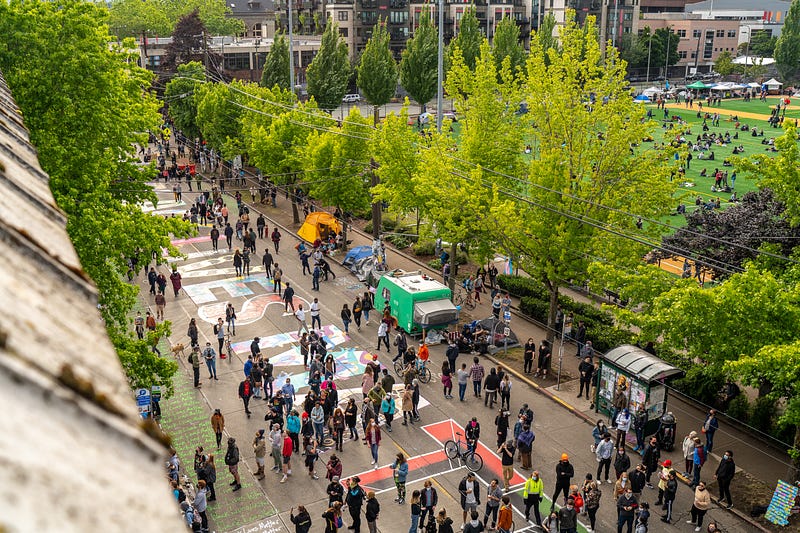
How denial of white privilege is instilling the culture of racism and how it’s the responsibility of white people to confront, understand and fix the problem.
Story and photos by Max Gleiberman
Dear fellow white people,
I am ignorant and unconsciously racist.
So are you.
This country was founded on racism. It is rooted socially, politically, economically, institutionally and systemically in the country’s DNA. This allows an unfair advantage for us due to our white privilege.
I will never understand or relate to the inequalities and injustices endured by people of color, but we can do our part as white people to face our white privilege and inform ourselves of our country’s oppressive history and culture.
We need to learn to not be afraid of the shame it may bring, seeing that being silent and ignorant to the truth equates to violence. I can empathize with you and teach you how to question and understand your own white privilege.
White privilege was invisible to me growing up in the so-called liberal bubble of the Pacific Northwest. Public school failed to teach me the true history of Christopher Columbus and the Founding Fathers, as well as the institutionalized and systemic practices of the Jim Crow laws, which claimed racial segregation was “separate but equal.” The hindering of home ownership, voting, education and employment creates generational impacts, giving more reason for the need for policies like reparations.
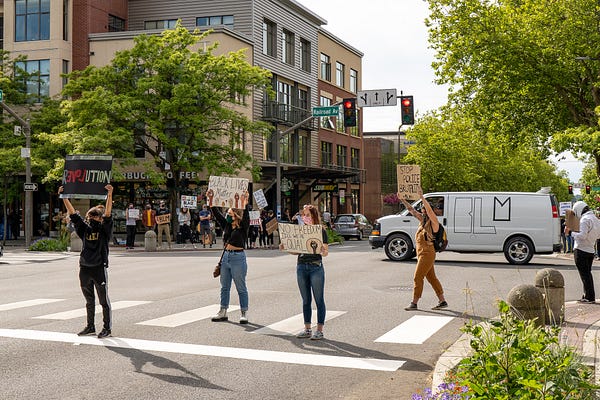
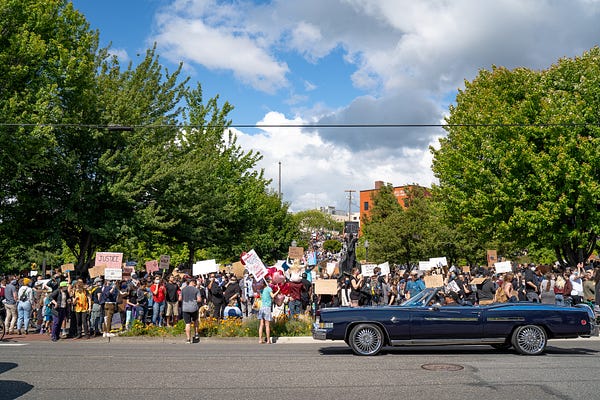
In high school, I was pulled over with my friend who is Black. We were told to get out of the car, and once out, the cop’s attention went straight to my friend, the passenger. He automatically made the assumption my friend was smoking or carrying narcotics, and instead of questioning me, the driver, he pulled me aside and told me hanging out with bad kids will get me in trouble.
Then, he let us go.
Institutionalized racism in policing could have easily turned my friend into a statistic that day. One out of every three Black boys today can expect to be sentenced to prison, compared to one out of 17 white boys.
This is what white privilege looks like.
My sense of activism for civil rights and social justice evolved when I began dating my ex-girlfriend of two years. We were an interracial couple — I am white and she is Black and Latina. During our relationship, I saw the firsthand effects racism had on someone I deeply cared about. This realization motivated me to become active.
I felt shameful for this late realization, but it helped me better understand my own complicity in racism.

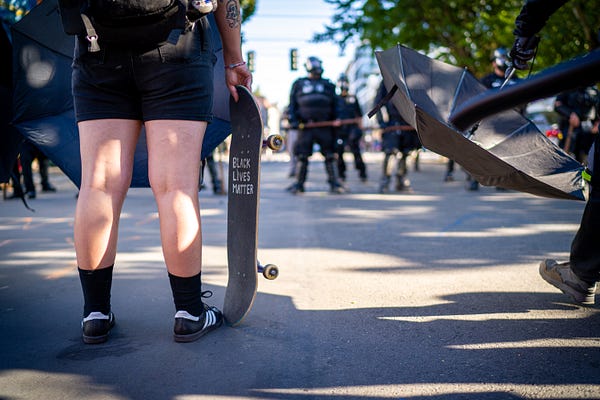
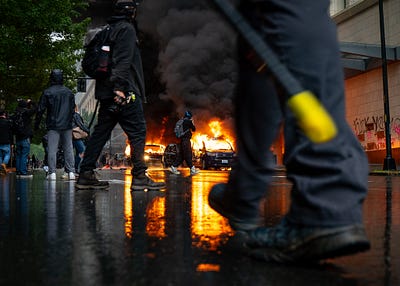
Seeing racism and ignorance directed at a person I loved was frustrating and sad. One time, at a bar, a girl sitting next to us said, “You guys are so cute.” I thanked her, and without hesitation, she said, “I think it’s the whole interracial thing.” Another time, I was at an event and someone told me, “Your girlfriend is cute for a Black girl.”
These microaggressions made me feel angry and disgusted and showed me the blatant ignorance people have. I began to understand my job to call out other white people and teach them about the racism and hate behind their comments and actions, no matter the situation or place.
I learned about social justice over the years through my passion for photography. I started attending protests and social justice events focusing on the disdain for former President Donald Trump, police killings of Black lives and the mistreatment of immigrants at the border.
On May 30, 2020, when the momentum of George Floyd’s death reached Seattle, Washington, I fully immersed myself in photography and protesting. I documented protests and events throughout the year almost on a weekly basis. I regularly visited the Capitol Hill Autonomous Zone, and I shared my experience through social media and conversation.
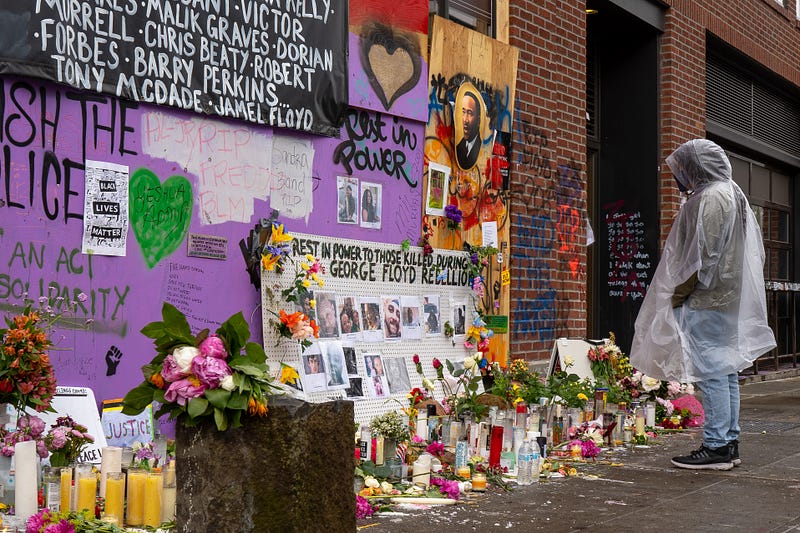
Trump’s administration exposed the racism and ugliness that I was naïve to. White nationalists rallied in Charlottesville, Virginia. Trump called immigrants from the Southern border “rapists and murderers” and Haiti a “shithole country.”
His supporters showed ignorance by shouting “all lives matter” and “blue lives matter,” emboldening the support of racist confederate history and turning a blind eye to police brutality and unjust killings of Black people.
In studies done by PEW Research Center, 56% of adults said Trump made race relations worse since taking office, compared to 15% who said he made progress. Additionally, 65% of adults said it became more common for people in the U.S. to express racist or racially-insensitive views since his election.
Around eight out of ten white Republicans said the bigger problem was people seeing racial discrimination where it doesn’t exist, rather than people not seeing discrimination where it does exist.
Jessica Todd, a white local activist I met through a Bellingham Black Lives Matter protest, said when Trump won the 2016 election, she thought that simply voting Democrat made things better. She thought she understood the depth of racism in this country, but realized she was wrong in most of her assumptions.
She traveled between Seattle and Bellingham, Washington, for protests every week, even quitting her job to organize and protest for six months.

“We saw state and police violence firsthand in Seattle, and it definitely threw me into the collective struggle against fascism with a whole new passion,” Todd said.
It’s our obligation to dismantle institutions and systems of inequality, rewriting the injustices and wrongdoings of our forefathers. Never stay complicit, and remember the burden is on us white people to continue to educate ourselves and stay diligent in the fight for equality.
Sincerely,
Max Gleiberman
